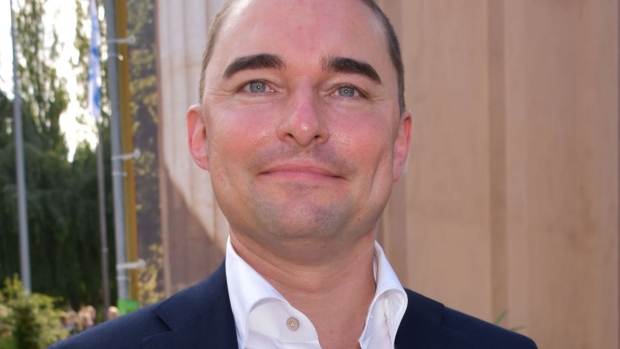Dec 1, 2022
Windhorst to Get Stake in 777 Football Arm in Hertha BSC Deal
, Bloomberg News

(Bloomberg) -- Lars Windhorst is poised to receive a stake in a subsidiary of 777 Partners LLC in return for his majority stake in Hertha BSC Berlin, people familiar with the matter said, a twist that will keep him indirectly involved at the German football club.
US private equity firm 777 is thrashing out details of a deal to buy Windhorst’s majority interest in Hertha BSC, including a fresh capital injection, the people said, asking not to be identified discussing confidential information.
Under terms being discussed, Windhorst would take a stake in 777’s multiclub football group, which houses its interests in various clubs across the world, according to the people.
Deliberations are ongoing and no final decisions have been taken, they said. Windhorst and a representative for 777 declined to comment.
If successful, 777’s takeover of Hertha BSC would represent the largest foreign investment ever in a German football club.
Windhorst last month agreed to sell his 64.7% holding in Hertha BSC to 777 after a dispute between himself and the club’s President that spilled into the public. The financier paid about €375 million ($393 million) for his stake in 2019. Earlier this year Windhorst faced allegations he hired an Israeli spy outfit to help oust the football club’s former president.
The cash element received by Windhorst in any deal will be greater if Hertha BSC remains in Germany’s top Bundesliga division. When the European leagues stopped for the World Cup, Hertha BSC sat 15th in the division, just above the relegation zone.
777 is one of a new breed of multiclub owners sweeping through global football. The firm, which targets historic clubs with deep connections to fan bases, has this year struck deals for Paris-based Red Star FC and Belgium’s Standard Liège, as well as Vasco da Gama in Brazil. It also owns Italy’s oldest football team, Genoa Cricket and Football Club, and stakes in Spain’s Sevilla FC and Melbourne Victory FC in Australia.
Proponents of the multiclub model point to cost synergies and the potential to strike more lucrative sponsorship deals. Americans, in particular, are drawn by the growth potential and lower valuations in European football compared with sports franchises back home. Their strong appetite has even brought them to Germany, where strict ownership rules prioritizing fan needs over financial excess have for years deterred buyers.
(Updates with details on multiclub model in final paragraph.)
©2022 Bloomberg L.P.






